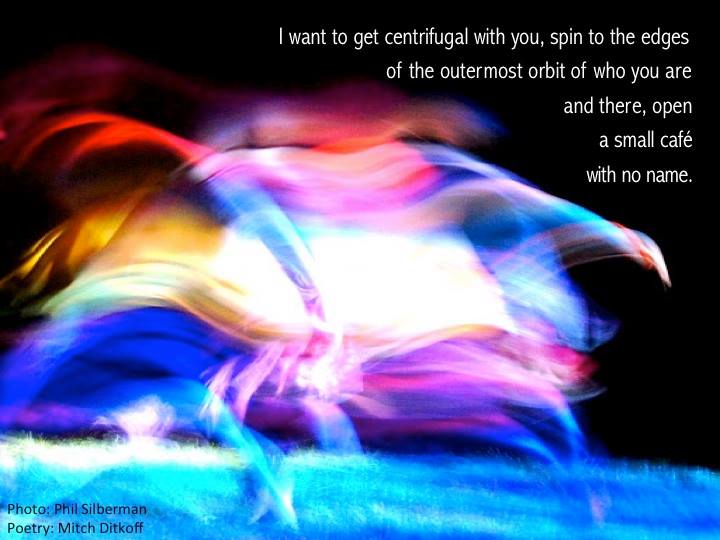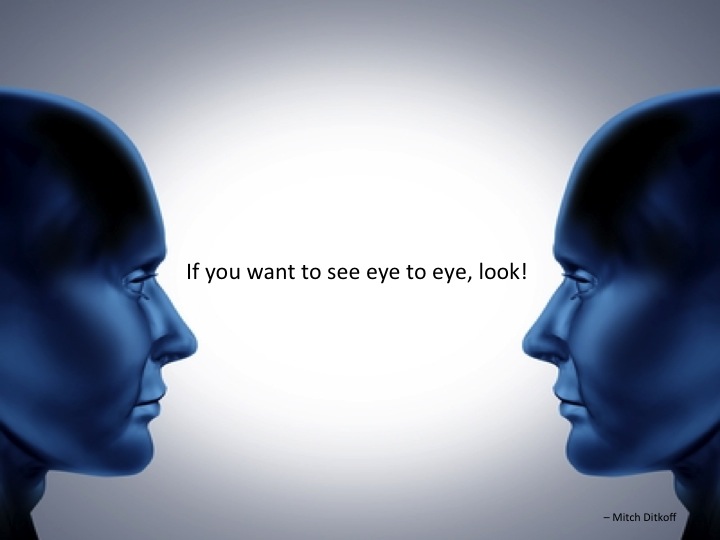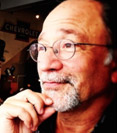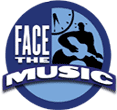25 Simple Ways to Free Up Your Innate Creativity

Most people agree that creativity is a good thing. Accordingly, they want to know how they can become more creative. Makes sense, right? The question, however, is a tricky one, not unlike asking "How can I have a good marriage?" or "How can I become a better human being?" There are hundreds of answers and often different strokes for different folks.
Bottom line, there is no blueprint, no follow-the-dots instructions in this realm. But there are some simple principles and guidelines to consider. Below are 25 of them (and all it takes is ONE to get unstuck).

1. Ask yourself WHY you want to become more creative: If you don't know the answer to this question, the rest of the guidelines that follow will be nothing more than fairy dust. What's in it for you? Why make the effort to become more creative?
2. Realize you already ARE creative: Most of us are subject to the myth that only some people are creative. Writers, artists, musicians, and filmmakers get lots of points for being creative, as opposed to accountants, tax auditors, and engineers. Hey folks, everyone is creative. The only thing is that sometimes our creativity gets obscured by years of funky habits, programming, and conditioning. Psychologists tell us that a human being is most creative at the age of five. After that, it's a slow and steady decline into conventionality. What are the characteristics of a five-year old and how can you bring more of those to bear during this time of the Coronavirus?
3. Identify what blocks your creativity: When Michelangelo was asked how he made his iconic statue, The David, he explained, "I simply took away everything that wasn't." To him, the statue was already in the stone. All he needed to do was remove everything in the way. What is blocking your creativity, these days? And what can you do to remove it?
4. Remember a time when you were creative: All of us have had times in our life when our creativity was flowing. The conditions were ripe for us to do our best thinking/creating. What was that time in your life? And what can you do to bring more of these conditions to bear during these odd times?
5. Define what you mean by "creative": If you Google the phrase "Definitions of Creativity", you'll find 53,900,000 entries. "Creativity" means different things to different people. What does it mean to you?
6. Identify a project you want to be creative about: If you don't have a project that inspires you enough to apply your creativity to, your effort to become more creative will be vague, at best. You need to have some skin in the game. What is the project you would most like to infuse with a renewed dose of creativity? (HINT: The best way to do this is to frame your project in the form of a question that begins with the words "How can I?")

7. Immerse: Creative people, no matter what their field, have the ability to dive in and stay with a project for long periods of time. They don't just hit and run. Instead, they become completely absorbed in their effort and it is often their state of absorption that is their secret sauce. That's why Einstein said, "It's not that I'm so smart. It's just that I stay with problems longer." How can, you create the time to immerse in your most inspired project?
8. Reframe failure: Creative people are less afraid of making mistakes than most people. They realize that creativity is a volume business -- that many experiments are needed and that trial and error comes with the territory. When Thomas Edison was asked how it felt to fail 800 times before coming up with tungsten as the filament for the light bulb, his reply said it all: "Fail? I didn't fail once. I learned 800 times, what didn't work." How can you launch more experiments? How can you embrace failure more than you currently do?
9. Go beyond your limiting assumptions: Often, the suppositions that we make at the beginning of a project are completely fictitious, a function of our past experiences and false beliefs. Creative people have a knack for being less bound by limiting assumptions than most people. This state of open-mindedness allows them to proceed in ways that open up new territories to explore. What is your biggest limiting assumption about your most exciting project? What can you do to go over, around, or through this assumptions?
10. Stay inspired and fascinated: I know of very few depressed people who are consistently creative. And while it's true, that creative people can sometimes get depressed, they don't dwell in that state for very long. What are three ways you can stay inspired and fascinated about your hottest, new venture?
11. Ask WHAT IF: Creative people have a unique ability to go beyond the status quo. One way they do that is by asking powerful questions -- questions that challenge the status quo and open up totally new horizons. The simplest question to ask in this regard is "What if?" What aspects of your work, these days, might benefit from asking "what if?"
12. Make connections between seemingly disparate elements: One of the qualities of a creative thinker is the ability to synthesize -- to see new connections between this, that and the other thing. What is MTV? Simply the connection between music and television. Drive-in banking? The connection between cars and banking. The Bloody Mary? Vodka and tomato juice. Most of us are so much "in our boxes" that we too infrequently connect A + B to get C. Tunnel vision has a hold of us. How can you combine two seemingly unrelated variables to create a new product, service or better way of doing business?
13. See through others' eyes: One of the biggest obstacles to creativity is our odd little habit of viewing everything through our own eyes/lenses/filters. Addicted to our own point of view, we tend to be constrained by our habitual ways of perceiving. The simplest way to free yourself from this constraint is to look at your problem, project, or opportunity through the eyes of someone else. What if Willie Nelson was responsible for solving your problem? Stevie Wonder? Rosa Parks? Oprah Winfrey? How would any one of these people go about it? And what clues do you get from their approach?
14. Pay attention to your subconscious: Many brilliant ideas come to people off line, in dreams, or in surprise moments when they're not trying to figure things out. What happen is this: the conscious, problem-solving part of our mind hits a wall and gets stuck. That's when the problem gets turned over to our subconscious mind. That's how Elias Howe's invention of the lock stitch sewing machine happened. That's how Rene Descartes came up with the Scientific Method. And that's what Seymour Cray, the inventor of the Cray Supercomputer, attributed his success to -- the ability to walk away from a problem and let his subconscious mind do the work. Where and when do you get your best ideas away from work?
15. Suspend logic and linearity: Most of us think deeply. We like to problem solve and, more often than not, we are rational beings -- so called "left-brainers." Buut there are times, in the creative process, especially in the beginning, when too much logic gets in the way. We also have a right-brain that needs to be exercised -- the associative, playful, non-rational side of ourselves How can you suspend logic and linearity for a while? In what ways can you allow more time to consider that which is beyond the rational?
16. Trust your instincts, intuition, and hunches: Albert Einstein once said, "Not everything that counts can be counted; and not everything that can be counted, counts." Indeed, he used to conduct what he called thought experiments, a fancy name for daydreaming, whenever he needed a breakthrough. Simply put, he trusted the intuitive part of himself. What is your intuition telling your most creative project? How can you trust this intuitions more than you usually do?

17. Entertain the fantastic: Gary Kasparov, the former Soviet Union Grand Chess Master, had the ability to strategize 26 moves ahead. But when, in 1989, he was asked what enabled him to beat Big Blue, IBM's mainframe computer, in a two game chess match, he attributed his success to "the ability to fantasize" -- to be able to make a quantum leap of thought. Einstein, too, was a big proponent of fantasizing and is famous for having said "the ability to fantasize has meant more to me than my ability to absorb positive knowledge." How can you make more time to dream big these days of the Coronavirus?
18. Collaborate: Some people assume that creativity is the result of a lone wolf genius inhabiting some kind of ivory tower. And while this sometimes happens, it is mostly a myth. Often, creativity is informed by the so-called lone wolf genius being in relationship to people -- i.e. jamming, brainstorming, and getting feedback. This kind of variable input has the potential to spark all kinds of insights and ahas. How can you increase the amount of creative collaboration in your life? Who might you ask to join forces with you this week to develop a new idea or possibility?
19. Have fun: This just in! The words "aha" and "haha" are very much related. In the aha moment, the person with the epiphany gets surprised about a given outcome. He/she becomes dislocated from their normal assumptions, i.e. Archimedes in the bathtub and Newton under the apple tree. The "haha" moment is similar. Indeed, the reason why most of us laugh is because our expectations have been disrupted by the storyteller or comedian. This surprise moment sparks an involuntary reaction called "laughter." Creativity and humor are joined at the hip. Get too serious and too sober and you diminish the odds of creativity flourishing. In what ways can you infuse your life with more humor and playfulness these days?
20. Look for happy accidents: Do you know what penicillin, vulcanized rubber, Post-It Notes have in common? They were all the results of accidents in the lab. They were not planned. They were not the result of a brainstorming session. They showed up unannounced. But instead of being dismissed as a mistake, the innovators associated with these discoveries, got curious. They paid attention. And they played around with this so-called mistake until they discovered its commercial value. Research indicates, in fact, that 75% of all product and service breakthroughs are the results of serendipity, surprise, and happy accidents. What have you been noticing in your life that others may have dismissed as a mistake or failure, when, in fact, it might be the clue you have been looking for?
21. Change environments: Sometimes, the simplest way to spark creativity when you are feeling stuck is to change environments. Socrates knew this. That's why he invented his "Peripatetic School of Education" -- a way to "walk the talk." Indeed, that's why many people get their best ideas during or after exercising. Where can you go, to refresh and renew yourself, whenever you are feeling stuck?
22. Be comfortable with ambiguity: Creating something new is not a function of an algorithm or sequential process. It often requires a lot of time spent not knowing or being confused or not having all the answers. This is why Tom Peters, innovation provocateur, likes to say that "innovation is a messy business." Yup. It is messy. And frustrating. And non-linear. And it often requires some time in the chaos zone. If you are not mindful of this phenomenon, you will likely grab onto the "first right idea" just to diminish your discomfort. In what ways can you stay with ambiguity longer than you usually do when working on a challenging project?

23. Acknowledge your progress: Creating something new is often a frustrating phenomenon. Results don't always come quickly. As a result, we sometimes get discouraged, enter into a cranky mindset, and lose our inspiration. The simplest way to neutralize this phenomenon is to take a few minutes at the end of each day to pause and acknowledge whatever progress you have made that day, no matter how small. Think of a project of yours that has been especially frustrating. What progress have you made on this project recently?
24. Give and receive feedback: Sometimes, creative people are on the right track, but their addiction to "being right" gets in the way. What they need to do, at times like this, is get some simple feedback from their peers -- another point of view. All too often, however, we interpret feedback as "criticism", so we're not open to it. Ouch! In what ways can you get more feedback from someone you trust?
25. Honor the polarities: People aspiring to become more creative, especially those who are time-crunched, would love there to be some kind of blueprint to follow. Guess what? There isn't. It doesn't exist. And even if it did exist, it would include contradictory directions. That's because the act of "being creative" is often a contradictory process. That's why Niels Bohr, the Nobel-prize winning physicist, once said: "Now that we have met with paradox, we have some hope of making progress." To the creative person, their process is not either/or. It's both. Below is a short list of some classic contradictions/paradoxes that creative people experience. Any of them familiar to you?
- Patience/impatience
- Solitude/collaboration
- Urgency/relaxation
- Seriousness/playfulness
- Divergence/convergence
What other contradictions/paradoxes do you experience in your own creative process? What can you do to honor them more than you currently do?
Jump Start Creativity
Idea Champions
MitchDitkoff.com
Posted by Mitch Ditkoff at 01:13 AM | Comments (0)














